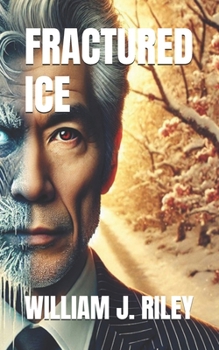Fractured Ice
A Journey Through Grief, Memory, and Renewal
By William J. Riley
A frozen river. A broken man. A path paved in poetry and spirits of the past.
Haruto Ishikawa has lost everything-the love of his life, the daughter who no longer speaks to him, and the will to carry on. Grief has left him hollow, wandering through Japan's winter forests, searching for a silence deep enough to swallow his pain. But when the river beneath his feet freezes over, something within him shifts. The spirits have been waiting. And they are not finished with him yet.
Blending lyrical prose with traditional Japanese poetic forms, Fractured Ice is a story of transformation-of a man fractured by sorrow, slowly piecing himself together with the wisdom of spirits drawn from Japanese mythology. Each encounter forces Haruto to confront a different part of himself:
The Spirit of Waves - Teaching him that love, like water, is both beautiful and fleeting.
The Spirit of Flames - Forcing him to face his anger and the destruction it leaves behind.
The Spirit of Blossoms - Reminding him that even the most fragile things in life can carry great strength.
The Spirit of Shadows - Guiding him through the echoes of his past, showing him what must be released.
Through the delicate power of haiku, tanka, and renga, Haruto's journey unfolds in a fusion of spirituality, nature, and self-discovery. The novel walks the thin line between grief and grace, between the past and the present, between what is lost and what remains.
A Meditation on Loss and ImpermanenceIn the tradition of Basho and Kenko, Fractured Ice speaks to the beauty of transience, the Japanese concept of mono no aware-the bittersweet impermanence of life. Through Haruto's journey, we are asked:





